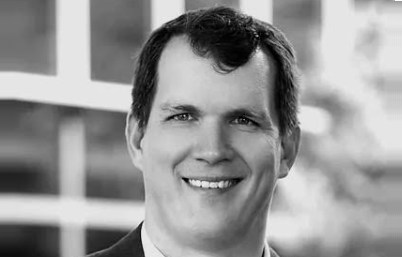
Adam Jackson is the founder and CEO of 360 Privacy. He launched the company after his experience working in physical security. He served in the U.S. Army for 10 years, with most of his time spent as a Green Beret and communications/IT expert.
Tell me about 360 Privacy.
I started 360 Privacy after my experience working in physical security. I noticed stalkers frequently showed up at principle’s homes and discovered that the principle’s personal information was readily available on the Internet. I searched for a solution for my clients and found that existing products weren’t effective in preventing this, so I developed a more comprehensive program and launched the company. We remove our customers’ personal information from data broker websites (like home addresses, phone numbers and email addresses), and conduct daily scans on both the deep and dark web.
We mostly hire people with decades of experience, who have dealt with the problems (that have real-life consequences) that we’re solving to come in and help build a world-class solution and deliver the solution to our customers and partners.
How has your background and expertise shaped the company’s approach to threat assessment?
The company, overall, has lived it. We have team members who were in special operations, intelligence, corporate security, and technology communities. The things that kept us up at night then are the problems that we’re solving today.
I was in the Army and before I was deployed to Syria, my team enrolled in one of the competitive solutions and it just didn’t work. We stayed up late figuring out how to delete our personal data ourselves. All of us have been worried that our families and our own safety would be affected by the problems we’re solving. It’s what drives the company every day.
What have been some of the company’s most significant milestones?
We just announced a $36 million growth investment from FTV Capital. Partnering with FTV is huge, especially given how successful they’ve been in the cybersecurity space with investments like ReliaQuest and A-LIGN.
We also recently made the shift from B2C to B2B to ensure executives at large and mid-sized organizations are protected in a world where they are fast becoming attack targets. Today we are proud to be working with many of the Fortune 100, and particularly tech-focused Fortune 100.
What differentiates 360 Privacy from its competition?
It’s really basic. When people enroll with us, it’s much harder to find personally identifiable information (PII) than when using competitive solutions. The efficacy, depth, and breadth of our product is unmatched. That and the fact that we’re subject matter expert-led, not business people-led has made all the difference. Our customers don’t email support or get a phone tree when they call us. They get a person who is an expert in security.
What are top issues threatening data privacy?
We’re seeing a paradigm shift away from the traditional model where the credit bureaus and a few other top-level data brokers would farm information about you and then sell it to other sources that would then make it public. That’s always going to be a problem, but the problem is getting broader. AI is able to extract and compile data from sources that traditional actors can’t access. If you say you live in Manhattan while doing a podcast, that information gets integrated into your profile. We’re seeing technology used to gather the data and the sourcing of that data mature at a pace much faster than we’re seeing solutions to the problems come out.
How can organizations build a comprehensive digital executive protection strategy?
It starts with a risk-based approach to who you want to protect and what resources go into protecting them. Once you understand the risk, you need to dedicate resources to mitigate and contain that risk and understand there are real consequences if you don’t allocate enough including, sadly, physical risk.
What do executives need to know about their protection strategy?
Modern executive protection started in the early ‘90s when someone threw a pie at Bill Gates and everyone said, “Wow, that’s really embarrassing. We can’t let that happen again.” Fast forward to 2025 and the CEO of a Fortune 10 company was shot in Manhattan and half of Reddit is celebrating it. I think the threat environment has changed dramatically over the last two decades, and I don’t think that executive protection teams have kept up.




